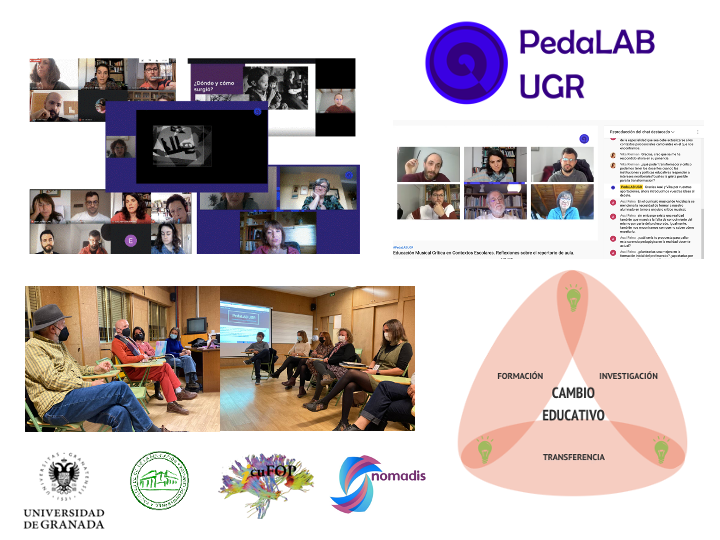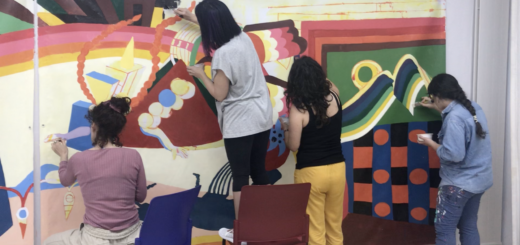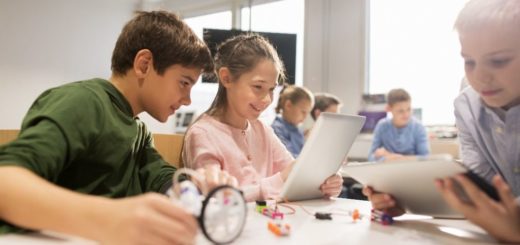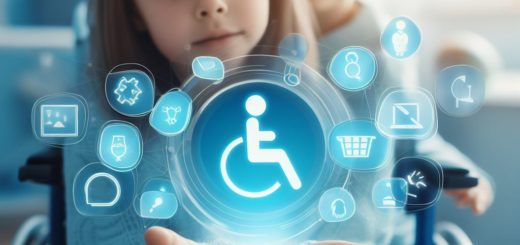Pedagogical Lab PedaLAB UGR, a space to generate collaborative research practices
From ICUFOP we have always been very respectful of the ethical considerations of research. Informed consent at the beginning, negotiation in the process and the return of reports in the final phase, but we were observing how this way of proceeding did not eliminate the distance between the research team and the team of teachers who were involved in the research we were conducting.
For this reason, for the development of the projects in which we are currently involved, NOMADIS and PedaLAB, we considered the possibility of exploring other forms of research. If disruptive practices in education were to be our aim of study, the ways of researching had to be different from those we had used before. In this search, the analysis of the educational-musical project Gorgoritos, currently Spin Off of the University of Granada, provided us a model of collaborative research with a direct transfer in daily praxis. It works as a hybrid space where cultural intersection is favored, a meeting point between university, school and community is generated and where the work of integration of the different contexts by university teachers is decisive (Ocaña-Fernández & Reyes-López 2018). The experience in Gorgoritos convinced us of the need to generate and develop this type of research including a greater number of teachers, contexts and educational levels. A collaborative research that would put knowledge at the center as a common good (Rivas-Flores, 2021) that would generate a democratic and inclusive process (Habegger & Mancila, 2019) and produce a horizontal dialogue between different knowledge.
Following this exploration, citizen laboratories have emerged in the last decade as an innovative tool to connect people from different fields of knowledge and design projects that transform diverse social spheres (Pascale & Resina, 2020). Spaces for educational research and innovation that provide an ideal place for experimentation, creativity and the testing of new educational formulas and citizen participation (Romero-Frías & Robinson-García, 2017). The essence of these spaces is collaborative action, open and linked to the development of common goods (Escaño, 2013). And they consider new forms of pedagogical knowledge where local and shared knowledge of citizenship is rescued.
The initial phase of the lab’s activity consisted of a massive call through different networks to generate a virtual meeting (in the first months of the post-COVID world) where teachers of formal and non-formal education, belonging to different stages and areas, addressed the challenges and needs they had at that time. In this first meeting they discussed the importance of research as a process for the improvement of teaching practice, art as educational mediation, and the need to generate exchange networks. These topics became the essential axes for the implementation and further development of the lab.
Based on them, different activities were articulated for the 2020/2021 academic year: Seminars of experiences where teachers communicated practices that they were developing in their centers, and which served to generate the exchange network they demanded; and conferences and chats with experts that allowed them to meet their training needs.
In this sharing, the group of teachers became interested in the work of one of their colleagues related to the musical preferences of the students and its incorporation as an educational tool in the classroom. The possibility to start a process of analysis around this issue was explored and, after some introductory sessions on educational research, we began a process of collaborative research.

The development of this pilot project has served to establish ourselves as a stable group, explore research tools, continue with the identification of training gaps and rethink objectives for the drafting of a more ambitious research project that the group of teachers has decided to submit to a call for research in compulsory education of the Government of Andalucía.
Both dissemination channels have been created with the purpose of sharing and making visible the activities generated, thus betting on a model of constant and direct transfer to the educational community.
The possibility of researching with and from the school, as Stenhouse (1984) pointed out when he introduced the figure of the teacher-researcher, has allowed us to carry out research that arises from the needs of the context and not from the needs of external researchers. In this way, all participants are involved in all phases of the research, generating a space for horizontal dialogue between teachers and researchers through the creation of a network of real exchange and professional support. This promotes analysis, reflection and action on the educational reality based on scientific evidence. Research and practice converge in a collective process of knowledge creation that implies a socio-community action. Knowledge that is a common and essential good not reducible to neoliberal logics of production, that generates a relationship of interdependence between School and University and that fosters the interaction of knowledge that is still hegemonic with that which is found in the margins and peripheries.
References
Escaño, C. (2013). Educación Move Commons. Procomún, Cultura Libre y acción colaborativa desde una pedagogía crítica, mediática y e-visual. Arte, Individuo y Sociedad, 25(2), 319-336. https://doi.org/10.5209/rev_ARIS.2013.v25.n2.39078
Habegger, S., & Mancila, I. (2019). Estilos alternativos de desarrollo local: metodología utilizada para el caso de una investigación acción participativa en la provincia de Málaga. OBETS. Revista de Ciencias Sociales, 14 (1), 233-257. https://doi.org/10.14198/OBETS2019.14.1.08
Ocaña-Fernández, A., & Reyes-López, M. L. (2018). Ecologías del Aprendizaje Musical: interacciones culturales e institucionales. En J. B. Martínez-Rodríguez y E. Fernández-Rodríguez (Coord.), Ecologías del Aprendizaje. Educación Expandida en Contextos Múltiples (pp. 171-188). Morata.
Pascale, P., & Resina, J. (2020). Prototipando las instituciones del futuro: El caso de los laboratorios de innovación ciudadana (Labic). Revista iberoamericana de estudios de desarrollo, 9(1), 6-27. https://doi.org/10.26754/ojs_ried/ijds.437
Rivas-Flores, J. I. R. (2021). Investigación transformativa e inclusiva en el ámbito social y educativo. Ediciones Octaedro.
Romero-Frías, E., & Robinson-García, N. (2017). Social Labs in Universities: Innovation and impact in Medialab UGR. [Laboratorios sociales en universidades: Innovación e impacto en Medialab UGR]. Comunicar, 51, 29-38.
Sancho-Gil, J.M., & Correa-Gorospe, J.M. (2019). Intra-acciones en el aprender de docentes de infantil, primaria y secundaria. Educatio Siglo XXI, 37(2), 115-140. http://doi.org/10.6018/educatio.387041
Stenhouse, L. (1984). Investigación y Desarrollo del Curriculum. Morata.

Author:
Almudena Ocaña-Fernández
Javier Olvera-Fernández
Grupo de investigación ICUFOP “Investigación del curriculum y formación del profesorado”
Universidad de Granada







1 Response
[…] respect, and tolerance among all members of the educational community. For that reason, at PedaLAB, the pedagogical laboratory of the University of Granada, we are working on several innovative and critical approaches to music education that primarily […]